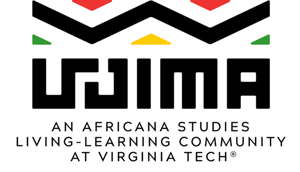Lifestyle
Virginia Tech to Close Africana and LGBTQ+ Living Communities

Virginia Tech has announced plans to close two specialized living-learning communities designed for students engaged in Africana studies and LGBTQ+ issues. The university will discontinue the Ujima Living-Learning Community and Lavender House at the conclusion of the spring semester in 2025. The decision affects over 200 students currently enrolled in these programs.
According to university spokesperson Mark Owczarski, students were informed of the closures in September. He emphasized that the university made this decision after careful consideration, recognizing the importance of these communities for fostering meaningful experiences. “This decision was made by the university with thoughtful reflection and care,” Owczarski stated. “We aim to support continuous efforts to improve academic programming in ways that support inclusive, enriching, and academically grounded opportunities for all students.”
Details on the Communities
The Ujima Living-Learning Community, established in 2018, currently serves 183 students. Its mission has been to promote cultural enrichment and academic excellence by facilitating dialogue centered on Black identity, culture, and history. Lavender House, which began in 2022, provides a supportive environment for 35 LGBTQ+ students and their allies, focusing on discussions around LGBTQ+ lived experiences.
While the closure will not impact the students currently involved in these communities during the 2025-26 academic year, the decision marks a significant shift in the university’s approach to supporting diversity and inclusion. Owczarski noted that changes in residence life programs are not uncommon, as the university periodically evaluates its living-learning community options.
Context and Reactions
The decision comes on the heels of broader national discussions concerning diversity, equity, and inclusion (DEI) in higher education. In January, former President Donald Trump issued an executive order limiting the scope of DEI programs at federally funded institutions. While Owczarski did not address whether federal pressure influenced the closure of these communities, the change follows a March vote by the Virginia Tech Board of Visitors to dissolve its Office of Inclusion.
Living-learning communities are common across college campuses, allowing students with shared interests to live together and take courses in a collaborative environment. Virginia Tech currently offers 21 such communities, covering various themes, including interfaith dialogue, the arts, and personal growth.
Feedback from the university community has varied. On social media, some parents expressed disappointment at the decision. One parent commented on a Facebook group for Virginia Tech families, sharing their concerns about the impact on their child’s experience. “That feeling of betrayal is just… really hard to stomach — for both students and parents,” they said.
As Virginia Tech prepares to implement these changes, the university maintains that it remains committed to its Principles of Community, which emphasize respect, diversity, and a supportive learning environment.
-

 Technology5 months ago
Technology5 months agoDiscover the Top 10 Calorie Counting Apps of 2025
-

 Health3 months ago
Health3 months agoBella Hadid Shares Health Update After Treatment for Lyme Disease
-

 Health3 months ago
Health3 months agoErin Bates Shares Recovery Update Following Sepsis Complications
-

 Technology4 months ago
Technology4 months agoDiscover How to Reverse Image Search Using ChatGPT Effortlessly
-

 Technology1 month ago
Technology1 month agoDiscover 2025’s Top GPUs for Exceptional 4K Gaming Performance
-

 Technology2 months ago
Technology2 months agoElectric Moto Influencer Surronster Arrested in Tijuana
-

 Technology5 months ago
Technology5 months agoMeta Initiates $60B AI Data Center Expansion, Starting in Ohio
-

 Technology5 months ago
Technology5 months agoRecovering a Suspended TikTok Account: A Step-by-Step Guide
-

 Health4 months ago
Health4 months agoTested: Rab Firewall Mountain Jacket Survives Harsh Conditions
-

 Lifestyle5 months ago
Lifestyle5 months agoBelton Family Reunites After Daughter Survives Hill Country Floods
-

 Technology4 months ago
Technology4 months agoHarmonic Launches AI Chatbot App to Transform Mathematical Reasoning
-

 Technology3 months ago
Technology3 months agoUncovering the Top Five Most Challenging Motorcycles to Ride





















